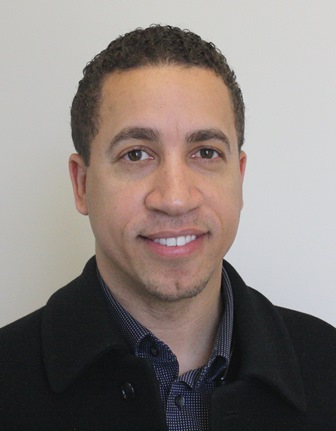
UMES professor earns 2nd U.S. Patent in three years
Friday, May 4, 2018
Dr. Sean Vasaitis, an assistant professor of pharmaceutical sciences, has the distinction of being the only current member of the University of Maryland Eastern Shore faculty with two U.S. Patents to his credit.
The latest came in early February for the development and use of “novel compounds (that) are potential agents for the treatment of all forms of prostate cancer and other diseases that depend on functional androgen receptors.”
Vasaitis is part of a team that includes five other long-time collaborators originally at the University of Maryland School of Medicine who earned a previous patent regarding this technology breakthrough in 2016.
“It’s been very rewarding work, and something I take quite seriously,” said Vasaitis, a 1996 UMES alumnus and the pharmacy school’s Interim Assistant Dean for Student Affairs.
His co-inventors listed on both patents are: Dr. Vincent C.O. Njar (lead inventor), Lalji K. Gediya, Puranik Purushottamachar, Abhijit Godbole and Andrew Kwegyir-Afful. The research team has additional patents pending in more than 30 countries around the world.
Vasaitis, who joined the UMES faculty in 2010, said the research is motivated by the sobering statistic that “prostate cancer is the (nation’s) second-leading cause of cancer death in men, with a one-in-nine lifetime risk of being diagnosed with the disease.”
Vasaitis said he and fellow researchers focus on finding compounds capable of disrupting the action of multiple pathways in the body that fuel prostate cancer growth.
“Prostate cancer progression is often driven by natural chemical messengers called androgens,” he said. “Androgens are steroids, the hormones that help muscle growth and drive the maturation of boys to men.”
“Androgens must bind with a protein called an androgen receptor (AR) to work,” Vasaitis said. “It is similar to a key and a lock; the androgen – the key – must bind with the androgen receptor – the lock – in order to work.”
“When a man develops prostate cancer, androgens bind with receptors (ARs) in the cancer cells, and may cause the cancer to grow,” he said.
“Androgen removal is a method doctors use to treat prostate cancer, but it is difficult to eliminate all sources of androgens. Advanced prostate cancer eventually becomes resistant to current therapies.”
The research team Vasaitis works with believes a more effective treatment is “directly reducing the amount of the androgen receptors in the body.”
The compounds – or novel inhibitors – that won patent approval “are able to reduce the amount of the normal androgen receptors, and mutated forms of those receptors that (can) make prostate cancer grow without androgens,” Vasaitis said.
“Some of these compounds have the additional benefit of being able to reduce the body’s ability to make androgens, as well as directly block (them) from activating” their receptors, he said. “In this way, our single agents are able to disrupt prostate cancer growth at multiple target sites.”
The new compounds that received patent approval also may find uses in treating cancers originating in the ovaries or the breasts, or in reducing non-cancerous enlarged prostates, he said.

